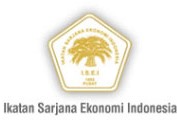THE ANALYSIS OF ORGANIC RICE CONTRACT FARMING IN CAMBODIA: A LESSON LEARNED FOR INDONESIA
(1) Research Center for Regional Resources, Indonesia Institute of Sciences Widya Grha Build. 3th Floor, Jl. Gatot Subroto Kav. 10, South Jakarta, Indonesia, 12710
Abstract
This study examines organic rice contract farming inCambodiaand its impact on farmers’ livelihood. The study’s objective is to gain a better insight of the terms and conditions of rice contract farming scheme inCambodia, and determine under what conditions contract farming could bring improvements to farmers’ livelihoods. This study contributes new research findings on contract farming practices and farmers’ livelihood due to organic-rice contract farming with a case study in Kampong Speu province,Cambodia.
Rice contract farming is not widespread inCambodiaat present, but is expected to expand significantly in the near future. Contract farming can increase investment into agricultural and infrastructure in rural areas. Contract farming can also enable farmers to access credit, inputs, technical advice and information about market condition and pricing trends. Yet, the disadvantages of contract farming include loss of farmer bargaining power and a potential reduction in profit margins, increased emphasis on improving production quality, land consolidation in favor of participating contract farmers, and less secure livelihoods.
In this study, the contract farming arrangements of Angkor Kasekam Rongroeung (AKR) Company is studied. A survey of 16 contract farmers and 20 non-contract farmers in Kampong Speu province has been undertaken to examine the AKR contract farming scheme arrangements and to identify farmer’s motivations to participate in contract farming and its impact on farmers’ livelihood.
AKR rice contract farming improves farmers’ livelihood because they get a higher income and rice yields. Higher price, good rice seed, and access to market are the main reasons for farmers to participate in AKR contract farming. However, strict requirements, heavy penalties, poor extension services, and lack of information about the contract terms and conditions reduce farmers’ long-term participation in contract farming. In addition, contract farmers have less bargaining power to negotiate with the company due to the absence of a farmer association.
Overall, the status of contract farming inCambodiaclearly points to the great potential for its expansion in the future. However, for this to be realized and for the benefits to be shared fairly between companies and the farmers themselves, the study concludes that issues about the role of the government, the regulatory framework, contract enforcement, and the formation of small-scale farmer organizations must all be addressed.
Keywords
Full Text:
PDFReferences
_______ , (2010). NGO Forum on Cambodia Comments on Sub-Decree on Contract based Agricultural Production. Phnom Penh: NGO Forum
Agrifood Consulting International (ACI) and CamConsult. (2006). Cambodia Agriculture Sector: Diagnostic Report. Available from http://www.agrifoodconsulting.com/ACI/uploaded_files/briefs/brief_35_45806374.pdf [2010, June].
Cai, J., Luyna Ung, Sununtar Setboonsarng, and PingSun Leung. (2008). Rice Contract Farming in Cambodia: Empowering Farmers to move beyond the Contract toward Independence. ADB Institute Discussion Paper No. 109. Japan: ADB Institute
da Silva. (2005). The Growing Role of Contract Farming in Agri-food System Development: Drivers, Theory and Practice. FAO. Available from http://www.fao.org/ag/ags/publications/docs/AGSF_WorkingDocuments/the_growing_role_of_contract_farming_in_agri-food_systems.pdf [2010, August]
Eaton and Shepherd, (2001). Contract Farming, Partnerships for Growth. FAO Agricultural Service Bulletin No. 145. Available from http://www.fao.org/ag/ags/AGSM/contract/cfmain.pdf [2010, September]
Goodman, Z. (2009). Holding the Actors Involved in the Global Land Grab to Account: The Committee on Economic, Social and Cultural Rights Urges Action from Cambodia. Available from http://www.3dthree.org/pdf_3D/3DCESCRCambodia-Kuwait_June09.pdf. [2010, February]
Grain. (2008). Seized: The 2008 Land Grab for Food and Financial Security. Available from http://www.grain.org/briefings_files/landgrab-2008-en.pdf [2010, February]
Oxfam. (2008). Contract farming in ASEAN countries: A fact finding study. Available from http://apf-contractfarming.wikispaces.com/file/view/Contract+Farming+in+ASEAN+countries+-+CREM+-+2008.pdf [2010, June]
Porter and Phillips-Howard. (1997). Comparing Contract: An Evaluation of Contract Farming Schemes in Africa. World Development, 25 (2): 227-238
Setboonsarng. (2008). Global Partnership in Poverty Reduction: Contract Farming and Regional Cooperation. ADB Institute Discussion Paper No. 89. Japan: ADBI
Shean. (2010). Cambodia: Future Growth Rate of Rice Production Uncertain. United State Department of Agriculture (USDA). Available from http://www.pecad.fas.usda.gov/highlights/2010/01/cambodia. [2010, August].
Sophal, E. (2009). Sowing and Sewing Growth: The Political Economy of Rice and Garment in Cambodia. Working Paper No. 384. Stanford University: Stanford Center for International Development.
Sriboonchitta and Wiboonpongse. (2008). Overview of Contract Farming in Thailand: Lessons Learned. ADB Institute Discussion Paper No. 112. Japan: ADBI
Sribooncitta, et al., (1996). Potentials of contract farming and farmer development strategies. Institute of Human Resource Development. Thailand: Thammasat University
Vermeulen and Lorenzo Cotula. (2010). Making the most of agricultural investment: A survey of business models that provide opportunities for smallholders. Rome/ London: FAO & IIED
Refbacks
- There are currently no refbacks.

This work is licensed under a Creative Commons Attribution 4.0 International License.






